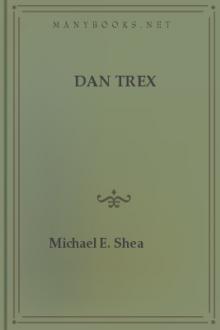How to Be a Mentsh (and Not a Shmuck) Wex, Michael (the false prince series txt) 📖

Book online «How to Be a Mentsh (and Not a Shmuck) Wex, Michael (the false prince series txt) 📖». Author Wex, Michael
Fraternal jealousy comes up again near the end of Genesis in the story of Joseph and his brothers. The latter respond to their father’s unconcealed partiality to Joseph and Joseph’s unquestionably obnoxious behavior (excused somewhat by his being a spoiled teenager; his brothers are all grown men) by selling him into slavery instead of going through with their original plan of murdering him. They then tell Jacob, their father, that Joseph was torn apart by a wild beast. Jacob’s reaction? “He refused to be comforted” (Gen. 37:35). His sons’ reaction is not recorded. Three chapters earlier, two of these brothers, Levi and Simeon, massacre a city. In the chapter following that, Reuben, the eldest, beds his father’s concubine (who is also the mother of two of his brothers). In the chapter that follows the story of Joseph, Judah, another of the brothers, is about to burn his daughter-in-law at the stake for adultery until she proves that her sin, unlike Adam’s, really is someone else’s fault and that someone else is Judah. Whatever else they might have been, the sons of Jacob certainly seem to constitute the earliest fraternity of shmek on record.
The Bible goes on to detail some really first-rate instances of shmuckishness—the Children of Israel kvetching their way out of Egypt and through forty years in the desert; their worship of the Golden Calf while Moses is still on the mountain receiving the Tablets of the Law; much of the politics in the courts of David and Solomon, or the prophet Elisha having forty-two children mangled by she-bears for calling him “baldy”—but the climax, the apogee of paleo-shmuckery (it’s like the paleo in paleontology, from the Greek for “ancient”) is the tale of Kamtso and Bar Kamtso that forms the backdrop to the story of Zechariah ben Avkilos that we looked at in the last chapter. Since we already know where the story is going, we will be able to see quite clearly how a single stupid act started a snowball of shmuckery that brought about the destruction of the Second Temple. The Talmud tells us:
Jerusalem was destroyed because of Kamtso and Bar Kamtso. A man who was a friend of Kamtso and an enemy of Bar Kamtso once gave a party and told his servant, “Go bring me Kamtso” he went and brought him Bar Kamtso.
(GITIN 55B)
Kamtso means “locust,” Bar Kamtso, “the son of a locust” or “locust, junior” it is doubtful that these were anybody’s real names. The Talmud is trying to tell us that an entire civilization can fall over something as trivial as a “bar” before the name of an otherwise undistinguished person; over Joe McShmo receiving an invitation that was supposed to have gone to Joe Shmo. Raw human nature will do all the rest:
When the host found Bar Kamtso sitting there he said, “You are my enemy; what do you want here? Get up and get out.”
Bar Kamtso said, “Since I’m here already, let me stay and I’ll pay you for what I eat and drink.”
“No,” said his host.
“I’ll pay for half the party.”
“No.”
“Then I’ll pay for the whole party.”
“No,” and he took Bar Kamtso by the hand, drew him up, and took him out.
(GITIN 55B-56A)
It was hardly Bar Kamtso’s fault that he was invited to the party in error; as he was the host’s enemy, he would not have recognized the servant who came to fetch him and who does not seem to have mentioned who was holding the party. Once the host has realized the mistake, he chooses to follow his dislike rather than the trail of error. Instead of shrugging his shoulders or getting mad at the servant, he chooses to shame the innocent Bar Kamtso, who seems desperate to avoid the ignominy of being thrown out of the party in front of a roomful of people. By offering to pay the whole bill, he is not only willing to make sure that the party-thrower loses nothing by allowing him to stay, but effectively provides him with the means to have another party to which he—Bar Kamtso—will assuredly not be invited. But the host has clearly worked himself into a state of some dudgeon about Bar Kamtso’s chutzpah in turning up in the first place; he’s too busy savoring his hatred, is too much of a shmuck to be able to see Bar Kamtso’s point of view, and has him thrown out anyway.
Bar Kamtso said, “Since the rabbis who were sitting there did not protest, that must show that they approve [of the host’s behavior], so I will go and chew things over with [inform on them to] the government.”
(GITIN 56A)
The rabbis’ silence suggests that the scene has played out loudly and publicly, rather than in discreet undertones. Bar Kamtso’s assumption that their inaction indicates acquiescence—or perhaps only indifference—becomes a lot more credible when we see how ready they are to act when he brings the blemished calf to the Temple. Indeed, Samuel Eidels, known as the Maharsho (died 1631), one of the most eminent and influential of Talmudic commentators, asks why the rabbis kept silent:
You could say that perhaps they failed to protest because they were unable to do so, and perhaps this was so because of the sycophancy that prevailed in that generation.
(MAHARSHOto Gitin 56A)
They were afraid to speak out in front of the wealthy and well-connected party-thrower, who was in a position to be able to do them harm, and they let their fear come between them and their duty, just as they later allowed Zechariah ben Avkilos and his noticeably warped logic to lead them to certain destruction. Zechariah is a total Talmudic nobody who is mentioned on only one other occasion (Shabbos 143a), but the Midrash gives us





Comments (0)